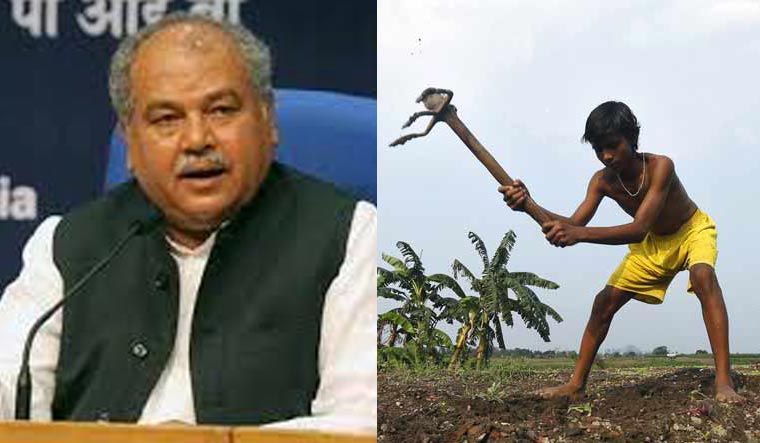Between 7,000-8,000 farmers of West Bengal have registered themselves online for availing the Rs 6,000 annual benefit from the central scheme PM-Kisan, despite the state refusing to implement the programme, Agriculture Minister Narendra Singh Tomar said on Tuesday.
However, these farmers cannot get the benefit of the Pradhan Mantri Kisan Samman Nidhi (PM-Kisan) scheme as the Centre cannot bypass the federal norms, he added.
Under the Rs 87,000-crore scheme which was announced in the Interim Budget, the government is disbursing Rs 6,000 per year to farmers in three equal instalments.
Last month, the government opened the PM-Kisan portal for self-registration.
"So far, 3 lakh farmers have done self-registration on the portal. About 7,000-8,000 farmers were from West Bengal," Tomar told reporters announcing the India International Cooperatives Trade Fair to be held between October 11 and 13 here.
These farmers cannot get the benefit as their names need to be cleared by the state administration to make them eligible for the PM-Kisan scheme, he said.
"We cannot bypass the federal norms. We have written to West Bengal to implement the scheme at the earliest. The scheme will benefit 70 lakh farmers in the state who will get about Rs 4,200 crore a year," Tomar added.
On the PM-Kisan portal, farmers who have not been enrolled so far can register themselves. Besides, the enrolled farmers can access the portal to check the status of disbursements made to their accounts. They can also get their Aadhaar authentification done from the portal itself.
So far, the government has disbursed more than one instalment to 6.55 lakh farmers so far, amounting to Rs 24,000 crore.
Asked about the announcement of minimum support price (MSP) of rabi (winter) crops, he said the agriculture ministry will soon move a Cabinet note taking into account the recommendation of farm advisory body CACP.
"We have received recommendations from the CACP. We will prepare a Cabinet note soon. We still have time," Tomar said.
Wheat is the main rabi crop, sowing of which begins from November onwards.


